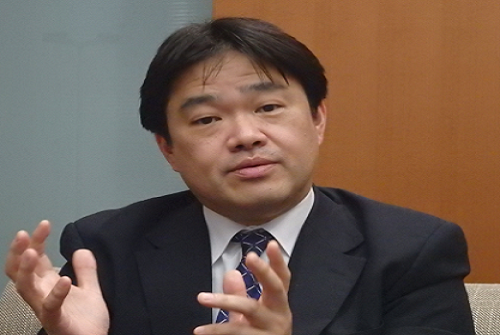Human and financial capital changes to revive Japan Inc.

The Japanese corporate governance reforms introduced under “Abenomics” are taking root, with a view to boost business competitiveness. The Japanese Stewardship Code and Corporate Governance Code for investors are now important platforms to facilitate engagement activities. Public funds such as the Government Pension Investment Fund (GPIF) and even the Bank of Japan (BoJ), which are purchasing equities through exchange-traded funds (ETFs), have emerged as key players - the former in particular - providing momentum for reform as well as a voice on investment.
Although these institutions do not directly engage with the companies they own, their outsourced investment managers and service providers feel the heat from them and are obliged to show high standards of stewardship on their behalf. The good news is that this involves a substantial amount of assets, and therefore it is likely that these reforms are here to stay.
One notable change which has recently occurred in Japan is that the boards of most companies included in TOPIX now have at least two external outside directors. The senior advisors known as “Sodanyaku” – a role which is mostly held by retired senior executive managers but still holds influence with existing management – are also under the spotlight, with investors voting against company proposals for appointments in some cases. In addition, the creation of corporate foundations financed by company equities have also been questioned by investors concerned that their intensions are not in the best interest of shareholders. More importantly, investors who are signatories of the Stewardship Code have pledged to engage with management and as these activities become more frequent thus keeping management aware of shareholders concerns. The pace of change over the last few years when it comes to ESG (Environmental, Social, Governance) is seen as a tectonic shift, even from a domestic perspective, where many have experienced various false dawns.
Whether or not Japanese corporations continue to change and improve their returns and efficiency as hoped, companies need to seize these reforms to mobilise their capital and resources to cope with opportunities and challenges at home and abroad. Domestically, despite Japan having a shrinking and aging population, dramatic changes in immigration policies to support growth are unlikely due to current political sentiment. Luckily, Japan is geographically located within a broader Asian economic and market sphere where access to these markets is relatively easy. To some extent, some companies are already taking advantage and there have been good examples of successes – think of Japanese cosmetics company Pola Orbis which has been able to expand its franchise by focusing on local tastes and preferences in countries like Thailand and Indonesia.
To facilitate current changes and improve their competitiveness, companies must invest in their human capital and find talent regionally as well as globally and throughout their organisations. The shortages of a younger workforce and retiring skilled labour are becoming more acute, already chipping away at the traditional corporate system which has been the foundation of many Japanese firms. Success or failure in making these generational shifts will determine the impact of corporate governance reforms, and eventually the financial fortunes of companies. Improving diversity at the senior management and workforce level is a good place to begin with. Corporate scandals and failures in recent times have been the result of an inability to find the skills and talents in a changing environment. If they are not successful, investors should oust incompetent management teams who are unable to make decisions that are critical to increase long term returns. Human capital changes along with financial capital changes are the next chapter of reforms to revive Japan Inc.
Found this useful?
Take a complimentary trial of the FOW Marketing Intelligence Platform – the comprehensive source of news and analysis across the buy- and sell- side.
Gain access to:
- A single source of in-depth news, insight and analysis across Asset Management, Securities Finance, Custody, Fund Services and Derivatives
- Our interactive database, optimized to enable you to summarise data and build graphs outlining market activity
- Exclusive whitepapers, supplements and industry analysis curated and published by Futures & Options World
- Breaking news, daily and weekly alerts on the markets most relevant to you



